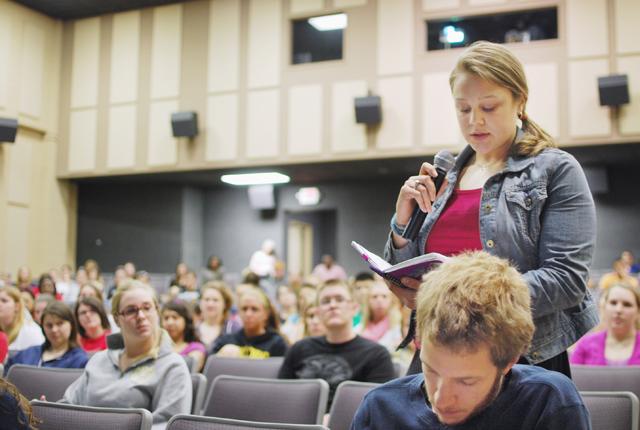Experts representing different sides of the education community discussed the current state of education in an open forum that took place in Witherspoon Campus Cinema Wednesday.
The panel, led by Jayne Fleener, dean of the College of Education, examined a multitude of problems facing education in North Carolina, including funding, teacher salaries and the state of charter schools.
The discussion was in context of the recently released Waiting for Superman, a documentary that follows the stories of five young students in an attempt to dissect the public education system and its problems.
While the film provided a foundation for the discussion, a couple of the panelists said viewers should be aware of its agenda.
Among the panelists was Michael Maher, director of Professional Education, who described the film as “slick and emotional.” Maher also said it is very important for students to be critical consumers of information.
“Believe in innovation and believe in creativity, because those are important,” said Maher. “Don’t form an opinion after hearing one side of the story.”
Tony Habit, president of the North Carolina New Schools Project,said the film had good messages and challenging ideas, but it also contained symbols that are disconnected from reality.
“The reality of working on the ground with teachers and principals is dissimilar from some of what is portrayed in the movie,” said Habit.
Concerning what should constitute a 21st-century learning environment, Jo Ann Norris, president and executive director of the Public School Forum of North Carolina, said schools need to have competent teachers, a competent principal and the resources to provide learning opportunities for the 21st century, where technology and interaction are more prevalent.
Maher also commented on the apparent segregation and lack of funding for North Carolina schools.
“In many cases, we’re creating two sets of schools: schools for white students, and schools for students of color,” Maher said. “I find the differences in demographics between charter schools and public schools disconcerting. They don’t look or perform the same.”
According to Maher, the two biggest problems are underfunding and the current testing philosophy – but he said that the ultimate root of the problem lies in poverty.
“We’re asking teachers to do more with less money, and tests currently lead kids to underperformance,” said Maher. “Until we address the economic and educational disparity, we won’t get the outcomes we hope for.”
Fleener said she thinks it is important to hear what’s not working from the multiple perspectives provided by the panel when facing such systemic problems as lack of funding.
“People are exploring alternatives to traditional education, but the system as a whole is potentially taking a step backwards if education is not prioritized,” Fleener said.
Ebonee Taylor, a sophomore in mathematics education, said she was eager to be part of the solution.
“I want to teach in North Carolina, and I think it’s so important for education majors to be informed if they want to be able to change what’s going on,” Taylor said.
Maher said despite the complex problems facing education, the best thing college students can to is be engaged in any way, such as volunteering as a tutor or at a soup kitchen.
“Students need to open their eyes to the disparity,” Maher said. “In many cases it’s important to realize your privilege and ask, ‘What can I do with my advantage?'”








